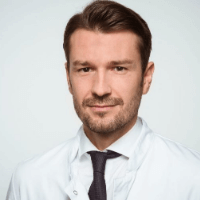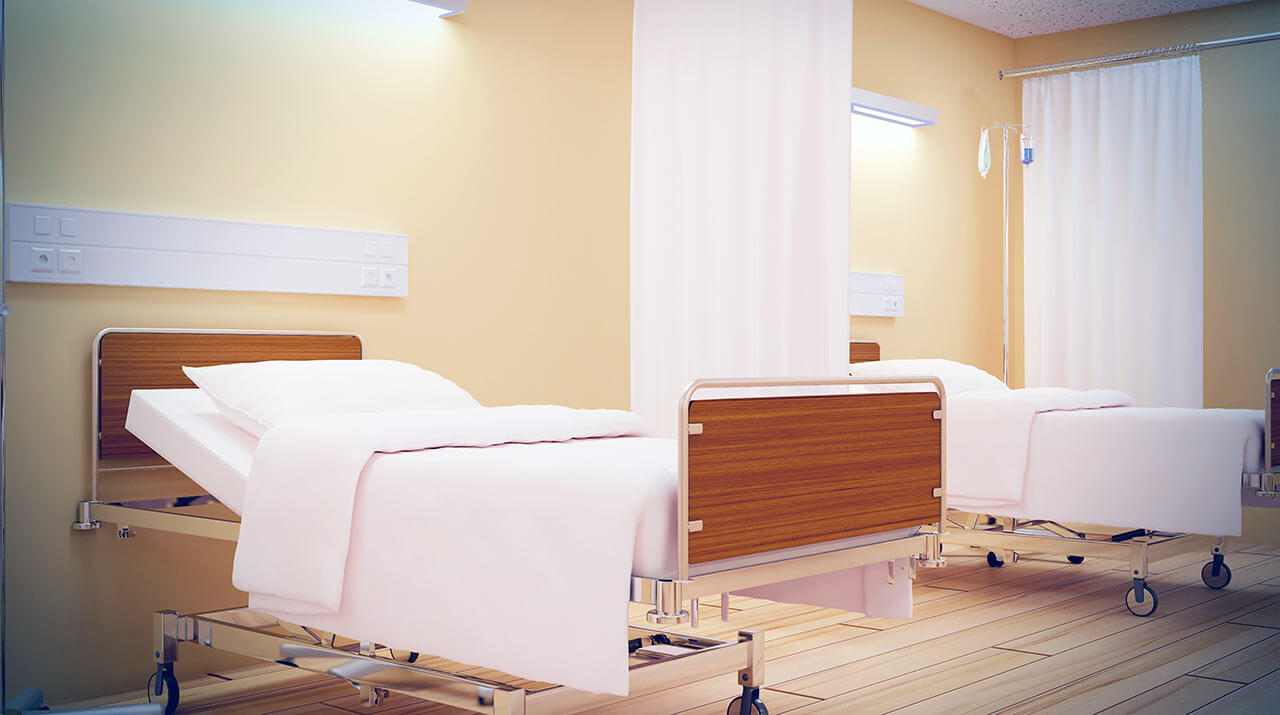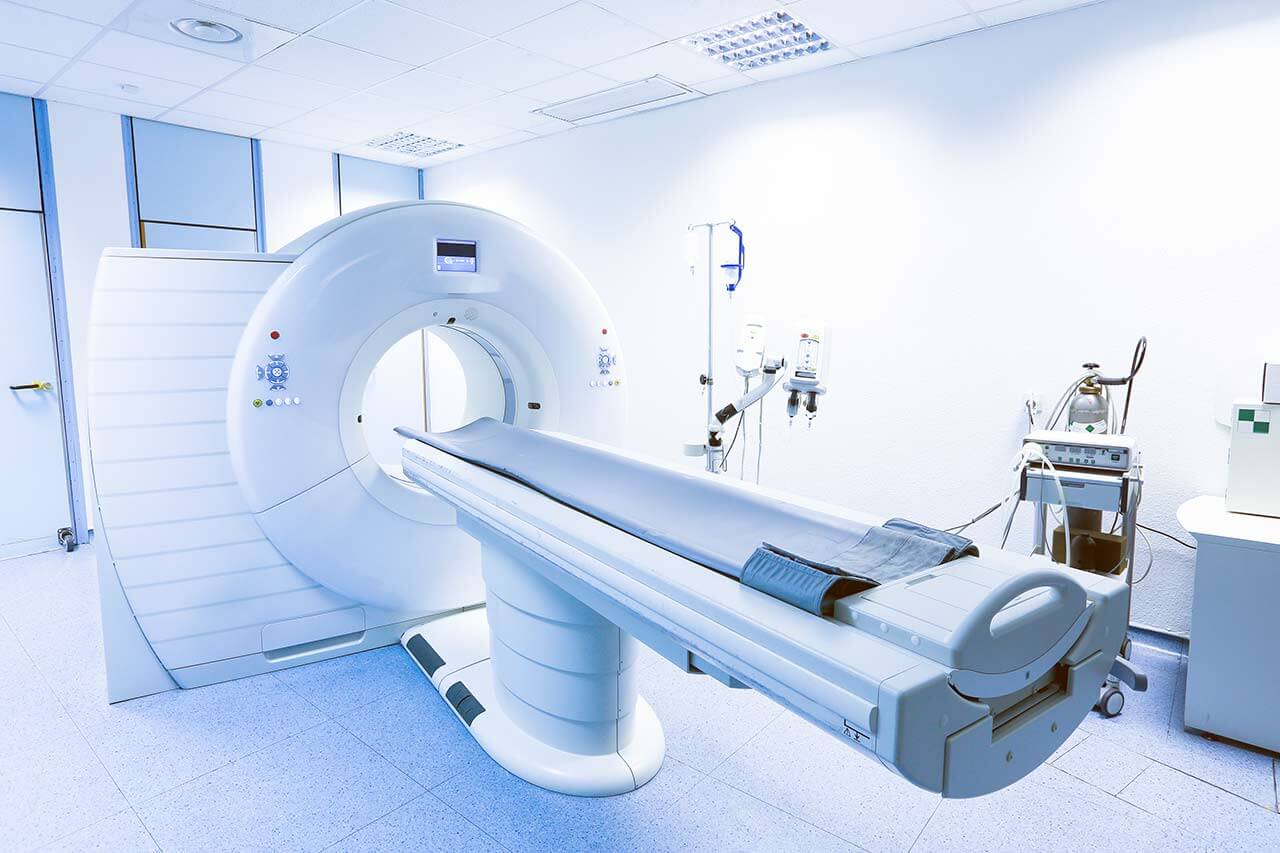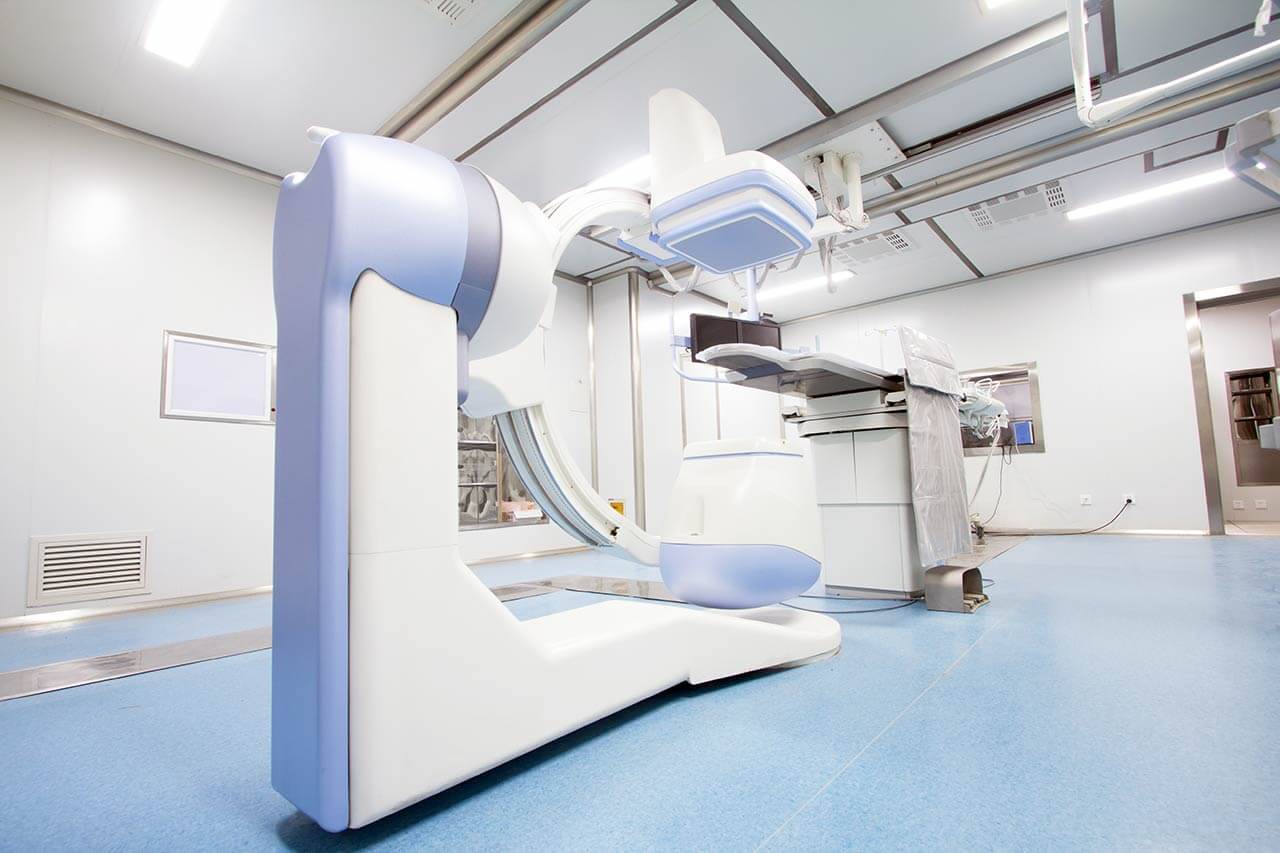
The program includes:
- Initial presentation in the clinic
- clinical history taking
- physical examination
- orthopedical examination
- X-ray of hip joint
- MRI scan of hip joint (on indication 1200 €)
- nursing services
- consultation of all leading experts
- development of individual treatment plan
Required documents
- X-ray examination of the hip joints
- MRI scan of the hip joints, if available
Service
You may also book:
 BookingHealth Price from:
BookingHealth Price from:
About the department
The Department of Adult and Pediatric Orthopedics, Foot Surgery at the University Hospital Greifswald provides the full range of services for surgical and conservative treatment of musculoskeletal diseases. The medical facility admits patients of all age groups, including young children and adolescents. One of the key areas of the department's specialization is knee and hip replacement surgery. The department is a Maximum Care Arthroplasty Center certified in accordance with endoCert standards. The center performs more than 600 joint replacement surgeries annually. The doctors at the medical facility have unique experience in arthroscopic surgery, microsurgical interventions, minimally invasive operations, and septic surgery. The department also offers an innovative cartilage cell transplant procedure, which allows patients to restore severe damage to the articular cartilage. In addition, various foot diseases and injuries are treated here. The department's orthopedic team always strives to provide conservative treatment. If the patient still requires surgery, sparing surgical techniques are used, allowing him to restore mobility and return to his usual way of life as soon as possible. More than 1,800 inpatient operations and about 500 outpatient interventions are performed in the department's operating rooms annually. The Head Physician of the department is Prof. Dr. med. Georgi Wassilew.
The department has the status of one of the best medical facilities in Germany specializing in knee and hip replacement surgery. The department's surgeons are competent in primary joint replacement surgery and revision interventions to replace previously implanted knee and hip joint prostheses. In addition, the department offers surgical procedures to implant prostheses individually made on a 3D printer. These are indicated for patients with extensive bone defects. The main indication for joint replacement surgery is advanced arthrosis. The department's doctors have state-of-the-art computer equipment that helps them optimally plan the course of a surgical intervention. During operations, navigation systems are also used to ensure the most accurate implantation of the prosthesis and its excellent performance. In almost all cases, the department's surgeons manage to perform joint replacement surgery using minimally invasive techniques, thanks to which patients quickly get back on their feet.
The department's special offer is an autologous cartilage cell transplant. As of today, this therapeutic technique gives excellent chances for a complete cure for knee arthrosis and the restoration of cartilage with autologous tissues. A cartilage cell transplant consists of several stages: cartilage cell harvesting from a patient using minimally invasive techniques, cultivating the obtained biological material in a high-tech laboratory, and implanting cultured cartilage cells using minimally invasive techniques. As a rule, the interval between the first and second surgeries is about 6-8 weeks. After the completion of the transplant, the cartilage continues to grow in the joint and fills the defect. About 2 days after the operation, the patient can leave the hospital. He should follow his doctor's recommendations and avoid increased load on the joint for 6 months. Normal weight-bearing of the knee is allowed as early as 3 months after an autologous cartilage cell transplant. This transplant procedure is available only in a small number of the world's medical facilities and provides excellent results.
The department's clinical practice includes foot surgery. Of particular interest is conservative and surgical treatment for arthrosis, toe deformities, hallux valgus, hallux rigidus, Morton's neuroma, ligament tears, chronic ankle instability, Achilles tendon rupture, heel spurs, and other pathologies. A treatment regimen is selected for each patient individually, while doctors strive to perform effective conservative treatment, and surgery is the last-line therapy.
The department also treats musculoskeletal diseases in children. Orthopedists most often deal with congenital pathologies, including X- and O-shaped lower limb deformities, unequal leg length, hip dysplasia, clubfoot, scoliosis, etc. The entire range of conservative and surgical treatment methods for children and adolescents is available in the medical facility. Congenital deformities in children quite often require surgical repair. Operations in young patients are mainly performed using low-traumatic surgical techniques, which contribute to the child's rapid postoperative recovery.
The department's key clinical focuses include:
- Adult orthopedics
- Diagnostics and treatment of knee and hip arthrosis
- Diagnostics and treatment of knee diseases
- Knee instability
- Cruciate ligament injuries
- Patellar dislocation
- Damage to the cartilage lining of the joint
- Meniscus tear
- Diagnostics and treatment of hip diseases
- Hip impingement
- Hip dysplasia
- Hip fractures, including age-related and osteoporotic ones
- Avascular necrosis of the femoral head
- Diagnostics and treatment of shoulder diseases
- Shoulder arthrosis
- Impingement syndrome
- Calcific tendonitis of the shoulder
- Shoulder instability
- Rotator cuff tear
- Frozen shoulder
- Loose bodies in the shoulder
- SLAP tear
- Shoulder sports injuries
- Avascular necrosis of the humeral head
- Shoulder bursitis
- Diagnostics and treatment of spinal diseases
- Cervical, thoracic, and lumbar disc herniation
- Spinal stenosis
- Spinal deformities (scoliosis and kyphosis)
- Degenerative spinal instability
- Cervical myelopathy
- Spinal fractures and injuries
- Inflammatory spinal diseases
- Spinal tumors
- Chronic back pain
- Diagnostics and treatment of musculoskeletal cancers
- Bone and soft tissue sarcomas
- Bone metastases
- Diagnostics and treatment of sports injuries of the shoulder, pelvis, knee, elbow, and ankle
- Pediatric orthopedics
- Diagnostics and treatment of congenital deformities
- Axial deformities of the lower limbs
- Unequal leg length
- Diagnostics and treatment of hip diseases
- Hip dysplasia
- Slipped capital femoral epiphysis
- Perthes disease
- Diagnostics and treatment of spinal diseases in children
- Idiopathic scoliosis
- Neuromuscular scoliosis
- Scheuermann-Mau disease
- Spondylolisthesis and spondylolysis
- Osteomyelitis
- Diagnostics and treatment of foot diseases
- Congenital and neurogenic clubfoot
- Flat feet
- Tarsal coalition
- Diagnostics and treatment of congenital deformities
- Foot surgery
- Diagnostics and treatment of hallux valgus
- Diagnostics and treatment of hallux rigidus
- Diagnostics and treatment of toe deformities (claw and hammer toes)
- Diagnostics and treatment of clubfoot
- Diagnostics and treatment of Morton's neuroma
- Diagnostics and treatment of ankle arthrosis
- Diagnostics and treatment of axial foot deviations
- Diagnostics and treatment of post-traumatic contractures
- Diagnostics and treatment of cartilage lesions
- Diagnostics and treatment of foot deformities: flat feet, hollow foot, metatarsus adductus, and clubfoot
- Diagnostics and treatment of ganglion
- Diagnostics and treatment of bone exostoses
- Diagnostics and treatment of foot lesions due to rheumatoid arthritis and diabetes mellitus
- Diagnostics and treatment of heel spurs
- Diagnostics and treatment of Haglund's deformity
- Other medical services
The department's range of conservative and surgical treatment includes the following options:
- Conservative treatment
- Drug therapy
- Manual therapy
- Infiltration therapy
- Hyalart injections
- Therapy with autologous platelet-rich plasma injections
- Therapy with hyaluronic acid injections
- Shockwave therapy
- Infusion therapy (infusions of painkillers, high doses of vitamin C, etc.)
- Kinesio taping
- Acupuncture
- Surgical treatment
- Primary and revision knee, hip, and shoulder arthroplasty
- Arthroscopic surgery
- Autologous cartilage cell transplant
- Corrective osteotomy
- Osteosynthesis
- Shoulder arthrolysis
- Stabilizing shoulder surgery
- Septic surgery
- Other treatment methods
Curriculum vitae
From 2000 to 2007, Prof. Dr. Georgi Wassilew studied Medicine at the Humboldt University of Berlin. In 2006, he defended his thesis at the Humboldt University of Berlin, and in 2015 he had his habilitation. The Professor is an expert in joint replacement surgery and surgery with accelerated rehabilitation, minimally invasive interventions on knee and hip prostheses, revision interventions on knee and hip prostheses with pronounced musculoskeletal defects. In addition, he also specializes in the treatment of bacterial infections of artificial joints, and the surgical treatment of hip dysplasia using a special technique, in the development of which he was actively involved.
Photo of the doctor: (c) Universitätsmedizin Greifswald
About hospital
According to the reputable Focus magazine, the University Hospital Greifswald is included in the ranking of the best medical complexes throughout Germany!
The hospital is one of the oldest healthcare facilities in Germany, with long traditions and an excellent reputation. The history of the hospital begins in 1456, when the Faculty of Medicine at the University of Greifswald was founded. During this time, the hospital has managed to earn recognition in the national medical arena and gain prestige abroad. The hospital has 19 institutes and 21 specialized departments. The key to successful clinical practice is the combination of state-of-the-art equipment and highly qualified medical personnel who are actively engaged in the development of effective medical techniques and implement them in everyday practice.
The medical team of the university hospital has more than 4,400 employees, including world-famous professors who regularly undergo advanced training in the leading European and American hospitals, where they share their experience with foreign specialists. The doctors at the medical facility annually treat about 180,000 patients. At the same time, the specialists often provide medical care to patients with complex clinical cases, even in those cases that doctors at other medical centers consider hopeless. The hospital has more than 1,000 beds for inpatients, and many highly-specialized outpatient clinics are available in the medical facility for counseling and outpatient medical care.
The hospital presents all the fields of modern medicine. According to Focus magazine, the medical complex is recognized as one of the best in Germany for treating bowel cancer, bladder cancer, malignant brain tumors, skin cancer, multiple sclerosis, Parkinson's disease, dementia, cardiovascular pathologies, knee and hip pathologies, as well as ophthalmic and proctologic diseases. Diagnostic and therapeutic procedures are carried out in strict accordance with national and international standards, which ensures top-class medical care.
The medical team at the hospital makes sure that each patient feels as comfortable as possible during the therapeutic process. Doctors and nursing staff show humanity and understanding, striving to support each patient in every possible way on the path to recovery.
Photo: (с) depositphotos
Accommodation in hospital
Patients rooms
The patients of the University Hospital Greifswald live in comfortable single and double rooms. The patient rooms are made in bright colors and are quite cozy. The furnishings of a standard patient room include an automatically adjustable bed, a bedside table, a TV, and a telephone. The patient room has a table and chairs for receiving visitors. There is also free Wi-Fi in the patient rooms.
If desired, patients can live in enhanced-comfort rooms. In such rooms, patients are additionally offered toiletries, a bathrobe, and a change of towels.
Meals and Menus
The patients of the hospital are offered three healthy and tasty meals a day: a buffet breakfast, a hearty lunch, and dinner. The hospital also houses a cafeteria where one can have a tasty snack, a cup of aromatic coffee, tea, or soft drinks.
Patients staying in enhanced-comfort rooms are offered a special menu with a wide range of main courses, appetizers, desserts, and drinks.
Further details
Standard rooms include:
Religion
The services of representatives of religions are available upon request.
Accompanying person
Your accompanying person may stay with you in your patient room or at the hotel of your choice during the inpatient program.
Hotel
You may stay at the hotel of your choice during the outpatient program. Our managers will support you for selecting the best option.




